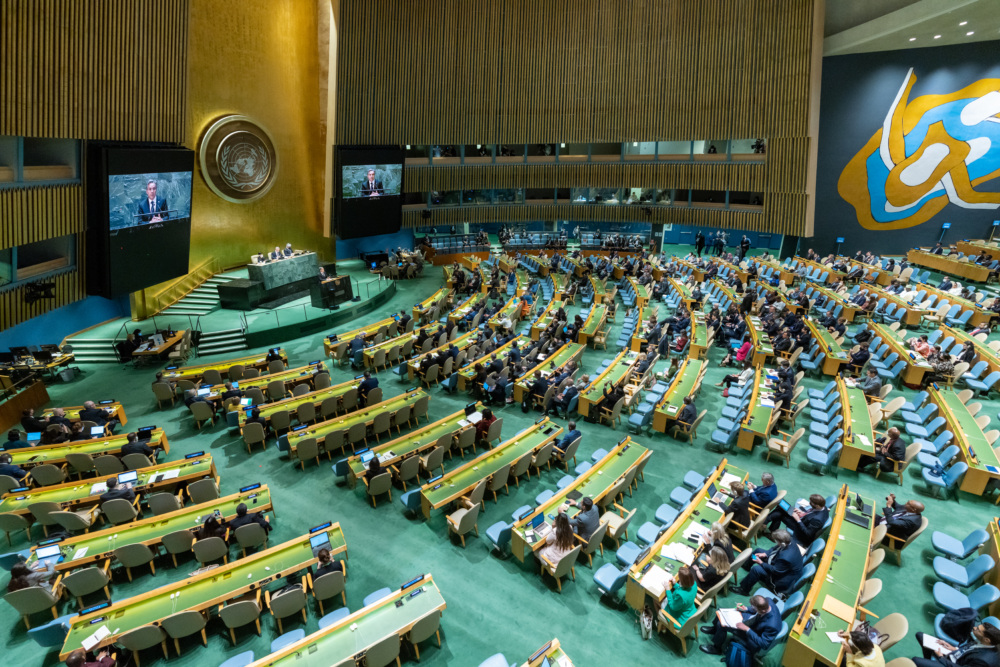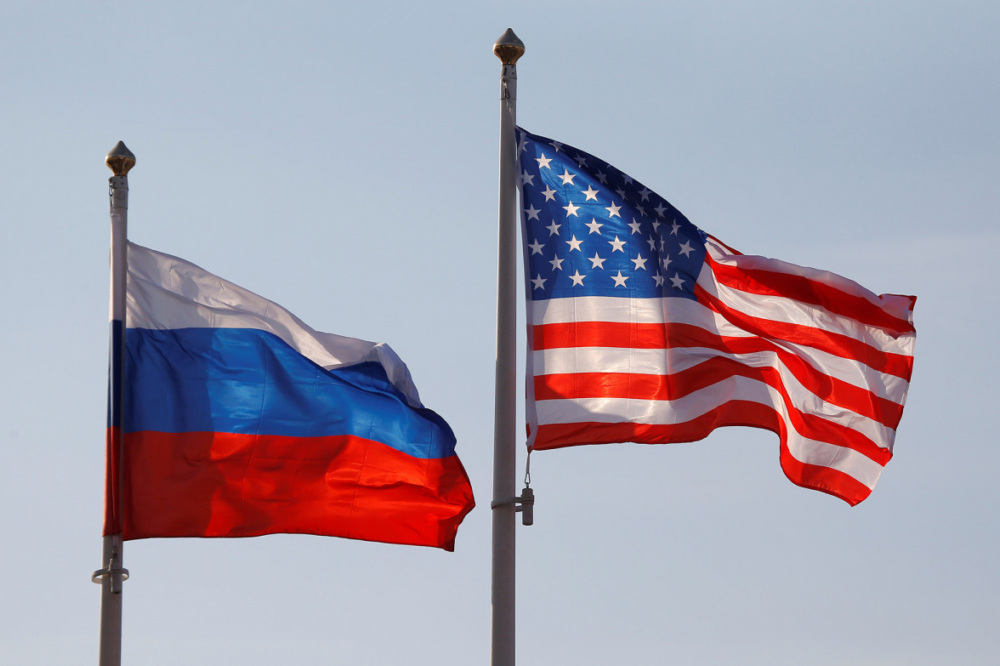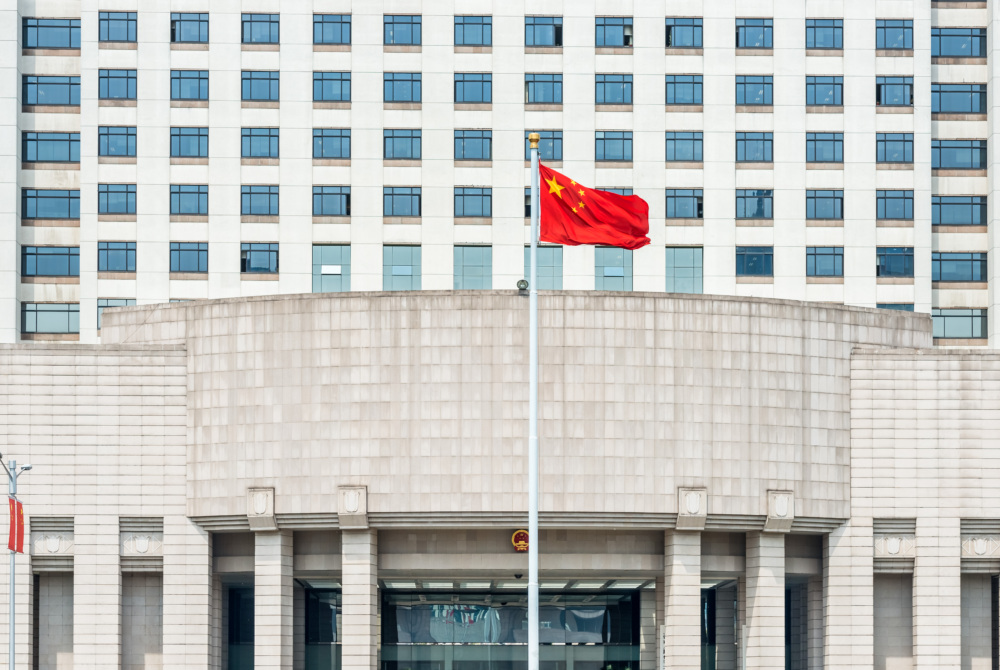This post was written by Patricia Jaworek, an intern with NTI’s Global Nuclear Policy Program. Originally from Hamburg, Germany, she recently graduated from the Fletcher School of Law and Diplomacy and the College of Europe with a joint Master’s degree in Transatlantic Affairs.
For decades, bilateral arms control agreements have been instrumental in managing U.S.-Russian nuclear relations. But without action, the last remaining major arms control agreement between the U.S. and Russia will expire early next year. Whether to extend the New Strategic Arms Reduction Treaty – known as New START – has become one of the biggest debates in global nuclear policy. Adding a critical perspective to the public discourse, former NNSA Administrator and Commander of Air Force Global Strike Command Lt. Gen. (ret.) Frank G. Klotz highlighted the military benefits of extending New START during a recent NTI seminar, concluding that extension was “the most prudent course of action.” Regarding reports that the Trump administration is considering resuming nuclear explosive testing, Klotz characterized such a move as misguided and unnecessary due to the success of the U.S. Stockpile Stewardship Program in ensuring the safety and reliability of U.S. nuclear weapons.
Set to expire in February 2021, New START places specific limits on the number of U.S. and Russian strategic offensive arms (ICBMs, SLBMs and heavy bombers) and the warheads deployed on them and provides transparency through its robust verification regime. Russian President Putin has repeatedly offered to extend the Treaty for an additional period of five years (as allowed by the Treaty), but the Trump Administration has indicated renewal is conditioned on the initiation of three-way discussions with China amid concerns about Beijing’s nuclear modernization program. (According to public estimates, China has a considerably smaller nuclear arsenal than the United States and Russia.)
Klotz presented the results of an analysis he recently had published in a report for the RAND Corporation, which underlined the Treaty’s crucial role in enhancing transparency and reducing uncertainty about Russia’s nuclear capabilities and intentions – two aspects that explain the strong military support for New START since its signing in 2010. If the Treaty were to expire, so would its verification regime, which allows for extensive data exchanges and 18 intrusive on-site inspections per year, depriving the United States of valuable insights into Russia’s strategic nuclear forces beyond those provided by more traditional intelligence sources.
Drawing from his experience as a Defense Attaché in the U.S. Embassy in Moscow, Klotz expressed doubts about the ability to successfully implement comparable verification measures outside of a legally binding treaty. Doing so would require resolving complicated technical and legal matters that would take considerable time and effort that could, instead, be invested in negotiating a successor treaty while New START remains in force.
The constraints that arms control agreements – New START included –historically have placed on the number and capabilities of Russia’s nuclear forces also enhance the accuracy of long-term predictions and, according to Klotz, facilitate effective defense planning and investments in U.S. nuclear modernization programs. Conversely, uncertainty about Russia’s nuclear forces increases the likelihood of “under- or over-developing” U.S. capabilities, risking either security gaps or misallocated investment. A new nuclear arms race could “wreak havoc on the overall Defense Department budget and other military programs.” It would require either an “upward adjustment of the DoD budget top line” or a re-allocation of funds away from accounts reserved for the development of conventional forces and emerging technologies.
Quoting senior military officials, Klotz emphasized that New START continues to contribute to “a more stable relationship between the United States and Russia” and that a “bilateral, verifiable arms control agreement is essential for the U.S. to provide an effective deterrent.” Extending the treaty would ensure ongoing constraints on Russia’s nuclear forces, provide better insights into their disposition, and buy time to pursue a new agreement – or agreements – which address the U.S. military’s additional concerns about Russia’s non-strategic nuclear forces (and perhaps China’s growing nuclear arsenal). Klotz advocated for a two-track approach of extending New START while conducting additional negotiations – at a minimum with Russia but, ideally, with other nuclear powers as well. He pointed out that “extension is not an end in itself, but rather a necessary step in setting the conditions to begin talks on a broader agreement – an objective that unquestionably commands widespread bipartisan support.”
Asked about the Trump administration’s efforts to use the threat of withdrawal as political leverage to increase pressure on Russia and China, Klotz rejected the idea as “dangerous,” underlining the military’s strong interest in continuous caps on Russian forces.
Similarly, he firmly disagreed with the reported discussions within the administration about the resumption of nuclear explosive testing in order to “bring Russia and China to the negotiation table.” According to Klotz, such a misguided strategy would break the national moratorium on nuclear testing that has been observed since 1992 and lower the bar for non-nuclear weapons states to develop nuclear capabilities. It also would be scientifically unnecessary. Speaking from his experience as a former director of the National Nuclear Security Administration in both the Obama and the Trump administrations, Klotz pointed to the annual assessment and certification of the safety, security, and reliability of the U.S. nuclear stockpile by the U.S. secretaries of Defense and Energy and the nuclear weapons laboratory directors, who continue to confirm that U.S. nuclear weapons do not need to be explosively tested. He stressed that “no technical reason” justifies the return to explosive testing, fearing that “it would greenlight Russia and China to engage in more robust development of their own nuclear weapons programs” and reduce the weight of U.S. demands vis-à-vis North Korea and other countries that have tested in recent memory. Instead, he argued, the U.S. ought to ratify the Comprehensive Nuclear-Test-Ban Treaty, which would ban all explosive nuclear weapon tests around the globe if it entered into force.
Recalling the role arms control has played in significantly reducing the nuclear weapons stockpiles of the United States and Russia during and after the Cold War, Klotz concluded by stating that it is a “commonly and widely shared view that arms control is to be seen as a complement to national security.” Bipartisan support for Washington’s current nuclear modernization effort has depended in large part on the simultaneous continuation and pursuit of nuclear arms control – a bargain that could be undermined if New START were allowed to lapse.
The full video recording of the seminar is available here.




